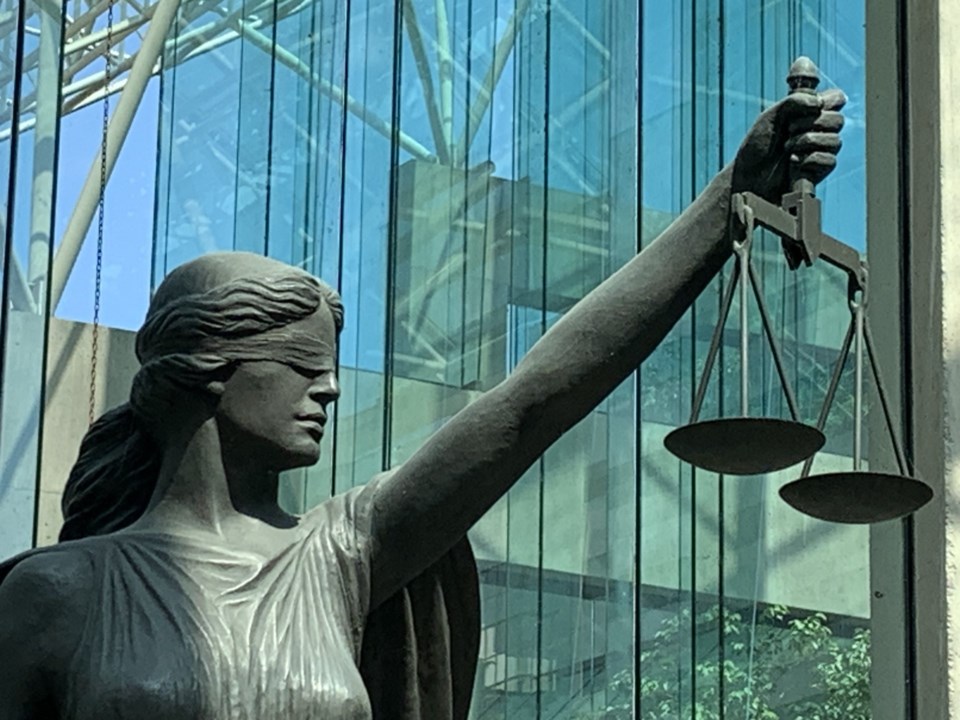B.C. Supreme Court has ordered the extradition of a B.C. man to the United States to face charges as part of an investigation alleging a drug ring moving cocaine and marijuana between the U.S. and Canada.
Justice Francesca Marzari said in her Sept. 8 decision that Roger Ellingson is alleged to be a member of a conspiracy to traffic large quantities of the drugs as well as millions of dollars between Canada and the United States using small private planes.
She said the Attorney General of Canada said the record of the case submitted by the U.S. is sufficient to show that Ellingson furthered that conspiracy by: recruiting pilots to traffic marijuana and cocaine; arranging meetings to coordinate conspiracy efforts; and arranging for encrypted communications for the smuggling group to avoid legal detection.
Marzari said the attorney general concedes that the evidence of Ellingson’s membership in the conspiracy is circumstantial but added Ellingson’s membership in the conspiracy was a reasonable inference arising from the anticipated evidence.
For his part, Ellingson, a resident of Cawston in southern B.C., challenged the reliability of portions of the record, and also the inferences the attorney general argued might be made.
A judge’s order does not mean immediate deportation of the person involved. Ellingson does have further avenues for appeal before that could happen.
Alleged conspiracy
Marzari said the record indicated Ellingson is alleged to have conspired with Leonard Colling, Ronald Grunwald, Robert Ryan Brown, Huy Duy Hoang and Gustavo Guerra to traffic large quantities of cocaine and marijuana between the two countries.
Two pilots and Guerra were all indicted in the United States in relation to this conspiracy, and have entered guilty pleas and are now cooperating with the prosecution.
The record said that, between Jan. 1, 2006 and July 1, 2008, the U.S. Drug Enforcement Administration, with the permission and assistance of the RCMP began working with a cooperating witness.
In June 2006, the witness introduced John Rock, a pilot and mechanic from Alaska, to Colling to repair three planes for the purposes of trafficking drugs.
According to the witness, Marzari said, during that June 2006 visit, Colling told Rock and the witness that they paid pilots $250 per pound of marijuana flown south into the United States and $1,000 per kilogram of cocaine flown from the U.S. to Canada.
Colling told Rock they had 150 kilograms of cocaine in Los Angeles, California, waiting to be flown to Canada, the decision said.
Rock is expected to testify that he decided to fly planes for Colling and Grunwald and to assist the operation in a number of ways, including by registering airline businesses, and leasing airplane hangars in Hemet, California and Olympia, Washington, under the names of these flight companies, Marzari said.
The decision said in September 2006, Rock and Colling allegedly flew to western Washington with a smuggled load of marijuana.
A week later, Rock, Hazen, Colling and Brown allegedly flew from western Washington to Houston, British Columbia, with a bag containing an unknown amount of U.S. currency.
Rock and Hazen are expected to testify to flying significant amounts of currency to California and to Houston at various times in 2006.
That allegedly included Rock attempting to fly Colling and a suitcase containing $880,000 from Illinois, to Hemet. When the plane developed engine problems, Hazen allegedly flew a different plane to retrieve Rock, Colling and the currency. The trio allegedly flew to Hemet with the U.S. cash, where Rock saw Colling and others count the money.
In late 2006, while in Hemet, Guerra allegedly brought Rock and Colling a suitcase, which Colling and Guerra said contained US$1.2 million. Rock, Hazen, Colling and Brown allegedly flew to Houston, B.C. with that suitcase and the US$880,000, where Grunwald and Ellingson allegedly met them.
And, in 2006 and 2007, Hazen allegedly took several trips with Rock, including some to Canada where they met Colling and Grunwald, and flew others to southern California where they met Guerra.
Then, said Marzari, in May 2007, Hazen flew a plane smelling strongly of marijuana to Hemet, staying for several days with Colling and then allegedly flying approximately 120 kg of cocaine from Hemet to Olympia, Washington with Colling.
Rock and Hazen then flew the 120 kg of cocaine from Olympia to Houston, B.C., where Colling and Grunwald, who allegedly took possession of the cocaine, met them.
Pinned by 700 pounds of marijuana
However, in July 2007, Rock crashed a Cessna on a take-off attempt in British Columbia with a load of marijuana. Brown was in the co-pilot seat and both were injured.
Marzari said Brown described to the cooperating witness paying $50,000 to a rancher to build a private airstrip, but that the airstrip was poorly constructed, causing the crash.
“He described that he and Mr. Rock were pinned by 700 pounds of marijuana in the plane,” Marzari said. “Mr. Brown also told the (cooperating witness) that workers at the ranch unloaded the marijuana from the wrecked plane, and Mr. Grunwald offered $10,000 to anyone who would drive the marijuana away from the site.”
The decision said Guerra was a source of cocaine for Grunwald and Colling and that Guerra would receive Grunwald and Calling’s marijuana from two pilots who flew into a small airport in Hemet.
Colling allegedly said he was purchasing several airplanes, including a jet, to use for smuggling and that he wanted to monopolize the marijuana market.
Marzari said Guerra estimated that between 2002 and 2006, he purchased between 2,000 and 3,000 pounds of marijuana from Grunwald and Colling, and that he supplied them with 400 to 500 kilograms of cocaine.



